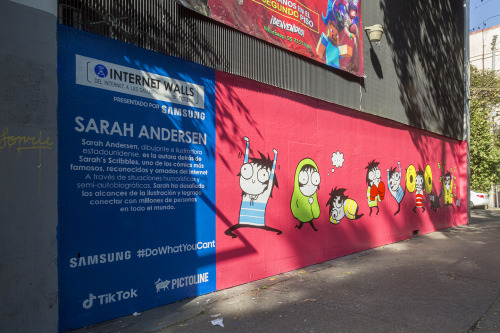Let me tell you some stories.
You are walking through the countryside, and meet a shepherd tending to his sheep. You strike up an idle conversation, in the course of which you ask him how many sheep he has. “Oh, quite a few” he replies. Asking further, you learn that he has more sheep than his brother, but they both have fewer than their father did, and that the largest flock in the area belongs to their cousin who has more than them both combined. What you don’t learn is how many sheep that is.
After further discussion it emerges that there is a simple reason for this: The shepherd is innumerate. He has never learned to count. So the reason he is not answering your question is not that he doesn’t want to, it’s that he does not have the concepts which would allow him to understand the question as you mean it, let alone to answer it.
You offer to teach him, and he accepts, and you spend some time teaching him a Yan Tan Tethera based system. It gets late, and he offers to let you stay the night, and as the sheep are put away in their enclosure for the night you help him count them, and in the morning he counts them as they leave. The two numbers are the same, a fact that seems natural to you but comes as something of a surprise to him.
After this, the farmer’s world has changed. Very little has changed about objective reality – “just” some new knowledge in one man’s head – but to him the world has a fundamentally different character. Things in the world have a property they lacked before: quantity.
This does not just let the farmer answer questions like “How many sheep do you have?”, it lets him answer questions like “Have you lost any sheep?” more easily, and it lets him answer questions like “Do you have enough food for your sheep over winter?”. Questions that were perfectly legible but difficult to answer now become possible to solve with his new concepts.
A boy was raised in a strict religious environment. As he comes of age, he starts to feel different from the other boys his age: They are becoming interested in girls and he is… not. The girls he knows seem fine, but they hold no special attraction to him. He is, however, much more interested in watching the other boys, and does not understand why this doesn’t seem to be a widely shared interest…
At this point the story diverges as one of three different things happen.
In the first branch of the boy’s history he confides in a close friend at school, someone from a different background. The friend in question shrugs as if it’s no big deal and says “Maybe your gay?” and goes on to explain that some people are straight, and thus mostly attracted to people of the opposite gender, some people are gay, and thus mostly attracted to people of the same gender as them, and some people are bi, and are regularly attracted to people of a variety of genders and it’s perfectly normal to be one of these.
At this point the boy’s world is changed. He has a word that describes what he is, and this lets him find out more, and connect to other gay people. He keeps his sexuality a secret from his family, knowing from talking to others that they will not approve, but eventually moves away from them, and after several relationships of varying lengths finds a man who he marries. They live happily ever after.
In another life he had no friend he could talk to about this, and so talked to his priest. This seemed to him a reasonable choice – the priest was a kind and good man to those who fit within his worldview. This kind and good man explained to the boy in his compassionate, fatherly, voice that his desires were a perversion, sent by Satan to tempt him, and that god would forever despise him if he gave into them and became a true pervert. As such, it was his duty to resist temptation and to pray to god for strength.
The boy nodded solemnly, and went home to pray. Eventually through his increased devotion, and his desire to resist temptation, he joins the priesthood. His life is not an unhappy one, but he always feels there is something missing.
In the third version of his life, the body tells no-one. He is clear that he is different, and does not feel that his difference is wrong, but he knows how his community will react and hides it from them. Eventually he marries a woman, who he does not love, and they have children together, who he does, but his marriage is made miserable by the sense of wrongness he has of it, and while his life is not without happiness it contains significantly more misery.
A student came to me with a maths problem that they were stuck on. I showed them how to look at it, and then they solved it. I taught them nothing new in doing so, but I guided them through applying the tools they already knew until the problem made sense.
A friend comes to you. They have had a fight with another friend, and want to talk about it. You listen thoughtfully, validate their feelings, and ask them questions about their experience.
You have not taught them anything new, but at the end they feel like they understand the situation better than they did before, and are happier for it.
There was a woman. She was a looter, and will be charged as such.
That is to say, when the flood came and she was trapped in the city, she broke into a vacant store in order to steal food for her children.
The man who murdered her husband when they were running to escape the rising waters was of course an upright citizen defending his property.
There was a woman. She was very good at her job. She was also black. The white men who she worked with did not believe she was good at her job. They never made any overt reference to her gender, or her race, but they were constantly asking questions about her work that they would only rarely have asked eachother and minimizing her achievements.
She complains to HR, and they explain to her that everyone gets these sorts of questions and that is her responsibility as an individual employee to showcase the quality of her work. She attempts to explain about systemic racism and the aggregate effect of the different levels of demands placed on her as a black woman, but the person from HR holds to a theory of individual action and refuses to acknowledge this complaint as valid. Accusations of racism are dismissed: Race has never been brought up by the coworkers, and they’re not bad people, therefore they can’t be racist.
Later, stories circulate the office about how she is paranoid and making up conspiracies against her in order to be the center of attention.
There was a child. They were lazy, and never did their chores, or their homework.
They felt immsense shame over this. They knew they should do these things, but they couldn’t. They started, and were distracted by something else, or they intended to and they forgot, or they tried to but felt such overwhelming anxiety at the idea that they couldn’t even start.
Which is to say, they were lazy and then made excuses for that laziness.
When they grew up some more, they learned about ADHD, and considered that they might have it. They got a diagnosis, and medication, and a lot of their “laziness” improved. It didn’t make like perfect, but it made it manageable.
They still feel a great deal of shame about how lazy they are, even though they know that it’s ADHD.
You go to a friendly coworker, and explain how you are being sexually harrassed: Another colleague is visiting on you all sorts of unwanted sexual attention, and does not stop despite your asking him to.
Your friend asks you why you cannot just take it as a compliment, and the conversation takes a very different turn than you were hoping. You eventually manage to explain the problem to him and teach him enough feminism 101, and in the end he seems to understand and acknowledges that your experience is bad, but by then it is clear that he needs to learn a lot more before it is possible for him to help you out.
I travelled to American recently. When I did, my sleep was disrupted. I couldn’t understand why. They told me that it was because of jet lag – the time was different here because of the rotation of the earth and when the sun rises at different points of it.
This explanation was obviously nonsense. The world is flat after all, so how could the sun rise at different times in different places?
All of these are stories about interpretation. Many of them have other significant ethical features, but they all have a core that is about how we interpret the world.
The world exists, and we inhabit it, but we also interpret it, turning our rich experience of reality into concepts that we can relate to and understand. When we see a sheep, we experience it as a sheep. When we see a flock of ten sheep, the concept “ten” is something we experience as a property of the sheep, even though it exists only in our heads.
Interpretations can be tied to theories, and those theories can be right or wrong: The earth is not flat, so any interpretation of facts that I base on it being so will likely result in wrong conclusions. Thus interpretation is constrained by reality, but it is not determined by it: A situation can be interpreted in many different and mutually incompatible ways, but not all ways are compatible with the world we live in.
Which of these interpretations we choose is not value neutral. The same person may be lazy or have ADHD, may be gay or a pervert. The choice between these two is not solely one of verifiable facts (although there are factual differences), but one of the values and subjective experience: What is considered right and wrong, how the world seems to those involved.
These interpretations have consequences. An interpretation transforms your world, which may uplift you or may cause you shame. It might cause you to exonerate someone you shouldn’t, or condemn someone you should. It might let you solve problems you otherwise could not, or it might prevent you from solving problems by hiding the truth from you.
Interpretation is not just about concepts, it’s a social act. I can help you interpret a situation even if I never tell you anything new. You can share your interpretation of a situation with me, which I can then either accept or reject.
By accepting and building on each other’s interpretations, and by working together to interpret more richly and deeply than we can on our own, we create a shared understanding of the world.
A theory-driven, value-laden, shared understanding of the world, with significant consequences for those we share the world with.
When building anything social, the question we must always ask is this: Who gets to participate, and are they all treated as equals?
Although I talked about “our” shared interpretation of the world, there is no single “us”: There are many groups of people, some disjoint, some overlapping, each sharing interpretations, and different groups may interpret the same events very differently.
Even within a group, not all of a person’s interpretation will be shared: Trying to explain racism or sexism, or your needs as a person with ADHD, to your colleagues will ofen quickly put the lie to the the idea that your company has a single shared way of looking at the world.
How do we ensure that we interpret the world in a way that works for everyone?
References and Further Reading
Although I have not explicitly used any of their terminology, this is primarily a post about epistemic injustice, a concept coined by Miranda Fricker in her book of the same name. My favourite piece on the work is Kristie Dotson’s paper “A Cautionary Tale: On Limiting Epistemic Oppression”, which is a response to Fricker’s work but also stands well on its own as an introductory piece. The types of epistemic injustice talked about in this post are mostly “hermeneutical” and “contributory”, but also contain other aspects of the ethics of interpretation that I don’t think fit cleanly into either of these (some of which are not even obviously epistemic injustice issues: The looting example is not about the injustice done to them in their capacity as knowers, it is about the injustice done to them by other people’s ways of knowing).
To a lesser extent, my presentation also draws on Rebecca Solnit’s “A Paradise Built in Hell” (especially the example of why “looting” is a problematic category), and Will Buckingham’s “Finding our Sea-Legs”, for making me think more about the impact of the stories we tell – both an instance of interpreting the world in its own right, and the basis of the structure of this blog post.




